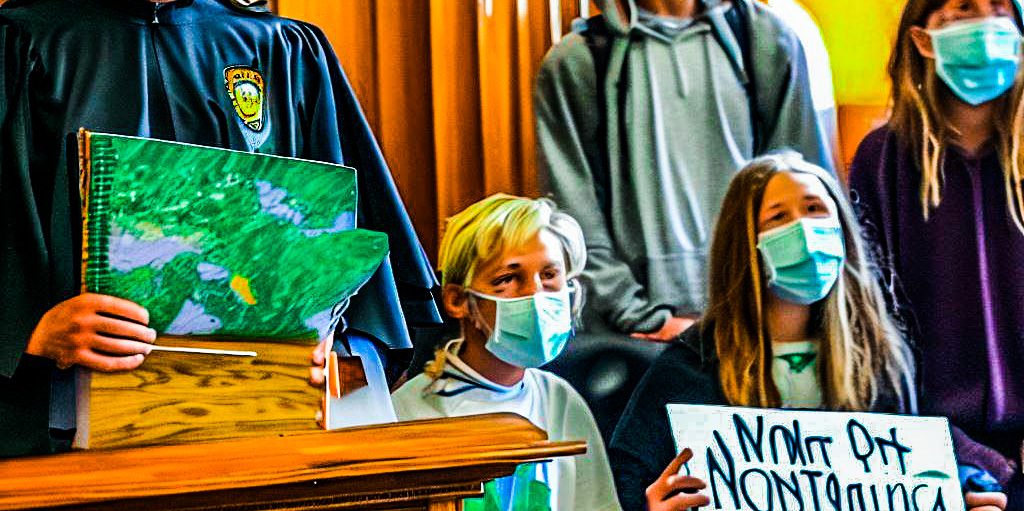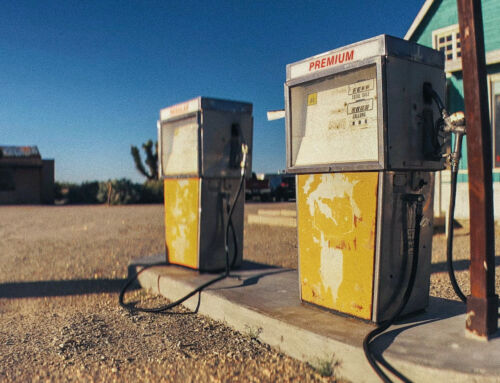View by Topic
Recent Articles
-
Congress Blocks California’s Gasoline Car BanSaturday, May 31st, 2025
-
EPA Will Keep Current Limits for “Forever Chemicals” in Drinking WaterSaturday, May 24th, 2025
-
Court Indefinitely Pauses SEC Climate Rule LitigationSaturday, May 17th, 2025
-
Maryland is About to Regulate Mold But is the Cart Before the HorseSaturday, May 10th, 2025
View by Month/Year
“Green Building Law Update” Headlines
Recent Articles & News from
Stuart Kaplow’s blog
at GreenBuildingLawUpdate.com
- Congress Blocks California’s Gasoline Car Ban: A Legal and Policy Analysis June 1, 2025
- EPA Will Keep Current Limits for “Forever Chemicals” in Drinking Water May 25, 2025
- Court Indefinitely Pauses SEC Climate Rule Litigation May 18, 2025
- Maryland is About to Regulate Mold: But is the Cart Before the Horse? May 11, 2025
Subscribe to the Green Building Law Update!
Stuart Kaplow brings his expertise and extensive experience to the table with his unique digital publication, "Green Building Law Update". Subscribers receive regular updates to keep them informed about important issues surrounding Environmental Law, Green Building & Real Estate Law, as well as the emerging demand for Environmental Social Governance (ESG).
Get fresh content through the lense of Stuart Kaplow's cutting-edge expertise, innovative commentary and insider perspective. Don't miss another issue! Subscribe below.

Courts Asked to Compel Government Action on Climate Change
After this article was published, on August 14, 2023, Judge Kathy Seeley ruled in favor of the 16 youth plaintiffs in Held v. State of Montana, in a 103 page decision declaring that the state of Montana violated the youth’s constitutional rights, including their rights to equal protection, dignity, liberty, health and safety, and public trust, which are all predicated on their right to a clean and healthful environment.
A first ever trial on constitutional protections from climate change is underway in Montana.
The case is hugely significant not only because it is the first of its kind to actually reach a trial court, and first in a growing trend of individual citizen plaintiffs suing companies, state governments, and even national governments on climate change claims, but the case is also key at a time when a divided Congress cannot act on climate change statutes, and the executive branch will not act on climate change regulations (possibly out of concern if agencies have the authority to go as far as they wish, arising from recent U.S. Supreme decisions?), and the third branch of government, the courts, are the new frontier for driving global warming policy for the nation.
In this instance, 16 young people from across Montana, who were between 2 and 18 years old when the case was filed in 2020, brought their constitutional climate lawsuit, Held v. State of Montana, against their state government. These young Montanans assert that, by supporting a fossil fuel driven energy system that causes and contributes to the climate crisis, Montana is violating their explicit constitutional rights to a “clean and healthful environment”; to seek safety, health, and happiness; and to individual dignity and equal protection of the law. This youth led climate lawsuit, which case you may be following but is a cause celebre among young people in the country among the 70% of those 21 and younger who identify climate change as their Number 1 concern, also argues that the state’s fossil fuel energy system degrades and depletes Montana’s constitutionally protected public trust resources, including the atmosphere, rivers, lakes, fish, and wildlife.
This historic case is based on language added to Montana’s Constitution in 1972:
Article II, Section 3 of Montana’s Constitution states: “All persons are born free and have certain inalienable rights. They include the right to a clean and healthful environment. ..,” and
Article IX, Section 1 of the Montana state constitution provides “The state and each person shall maintain and improve a clean and healthful environment in Montana for present and future generations.”
The plaintiffs are not seeking money damages but rather are seeking a declaration of their fundamental right to a stable climate system and a declaration that Montana is violating that constitutional right. The youth plaintiffs are also challenging the constitutionality of a provision in the Montana Environmental Policy Act, which in a rebuke to these plaintiffs was strengthened by the legislature last month, that prohibits the state from considering the impacts of climate change when making decisions about which projects to permit. There are real questions about the efficacy of a declaratory judgment by the judicial branch finding that the executive branch violated the state constitution. Will it be effective? What would the impact be when the conservative Montana legislative branch sides with the executive branch?
Of note, there are state constitution based climate change lawsuits against state governments pending in early stages of pleading in Hawaii, Utah, and Virginia.
New York, Massachusetts, and Pennsylvania have similar constitutional protections for environmental human rights. And other states are considering making efforts to put those constitutional amendments before the voters. Maryland House Joint Resolution 1 of 2023 was typical and would have ensured “that (1) each person, as a matter of human dignity, has a fundamental and inalienable right to a healthful and sustainable environment, and (2) the state, as the trustee of Maryland’s natural resources, including its air, water, lands, wildlife, and ecosystems, shall preserve them for the benefit of current and future generations.”
And there are also international versions of this bellwether judicial pursuit of good environmental public policy. Earlier this month 12 Italian citizens, Greenpeace Italy, and ReCommon filed a first of its kind lawsuit in Italy against the fossil fuel company ENI for past and potential future damages resulting from its contribution to climate change.
Globally, the cumulative number of climate change related cases has more than doubled since 2015, bringing the total number of cases to over 2,000. According to the Grantham Research Institute, it is tracking cases filed before courts in 43 countries from Australia to Germany and Pakistan to Papua New Guinea. This puts businesses at risk such that they must seriously consider options for green hushing to mitigate judicial liability.
How the first week of the Montana trial has gone might be best characterized by an exchange during the cross examination of climate scientist Steven Running, a co-recipient of the Nobel Peace Prize for his work as an IPCC author, when attorneys for the State requested that Judge Kathy Seeley dismiss references to the IPCC reports as “hearsay.” Her Honor denied the request.
Testimony in the Montana case being heard in Helena is scheduled to wrap up this Friday and you would be wise to see how Judge Seely might craft a declaratory judgment affording constitutional protections from climate change. The anticipated decision is being widely watched as a harbinger of things to come in climate change public policy.
Climate change litigation is continuing and evolving rapidly, and we expect the number of cases will continue growing. We also expect the judicial branch will supplant the executive and legislative branches, in driving greenhouse gas and the larger global warming policy.
This trial opened with the assertion that Montana’s relatively small population of 1.1 million people is “simply too minuscule to make any difference in climate change,” by Montana Assistant Attorney General Michael Russell in his opening statement, but this week of trial concluded with the rejoinder by Peter Erickson, a researcher at the Stockholm Environment Institute testified yesterday, who in response to that assertion that cutting emissions in one state would not make a difference in global warming, “Every ton of CO2 emitted in the world is equivalent to any another,” Erickson said. “Montana’s emissions matter.”
Webinar “You Need to Amend Your Lease Today in Advance of New GHG Laws” 30 talking points in 30 minutes, this Tues, June 20 at 9 am ET presented by Stuart Kaplow and Hudes Nancy of ESG Legal Solutions, LLC. Webinar is complimentary, but you must register here.
Excited to be speaking at NAIOP DC MD Seat At The Table With Stuart Kaplow to talk about “what is really going on today in the commercial real estate market” in matters of ESG and specifically GHG emissions, on June 22nd at 11:30 am. You can register here.









